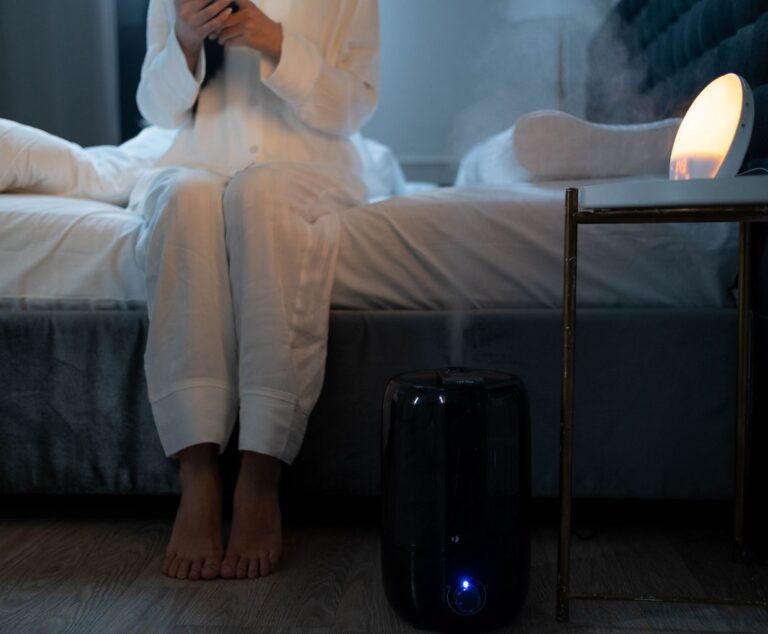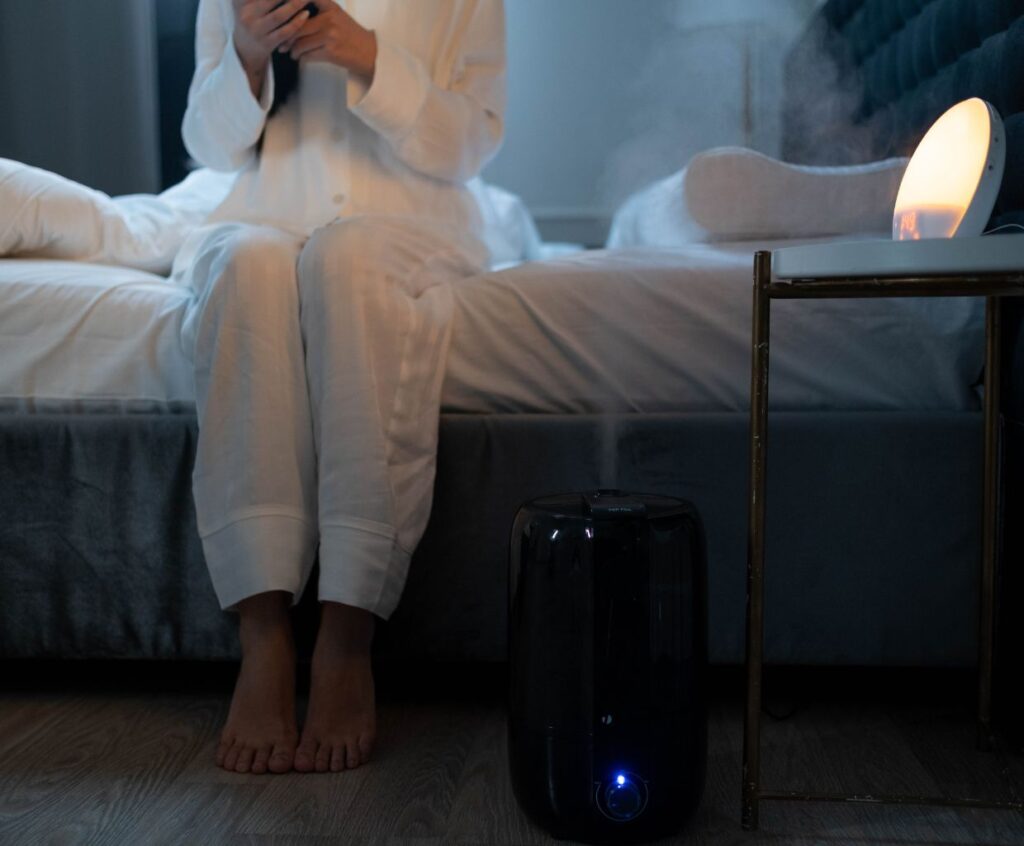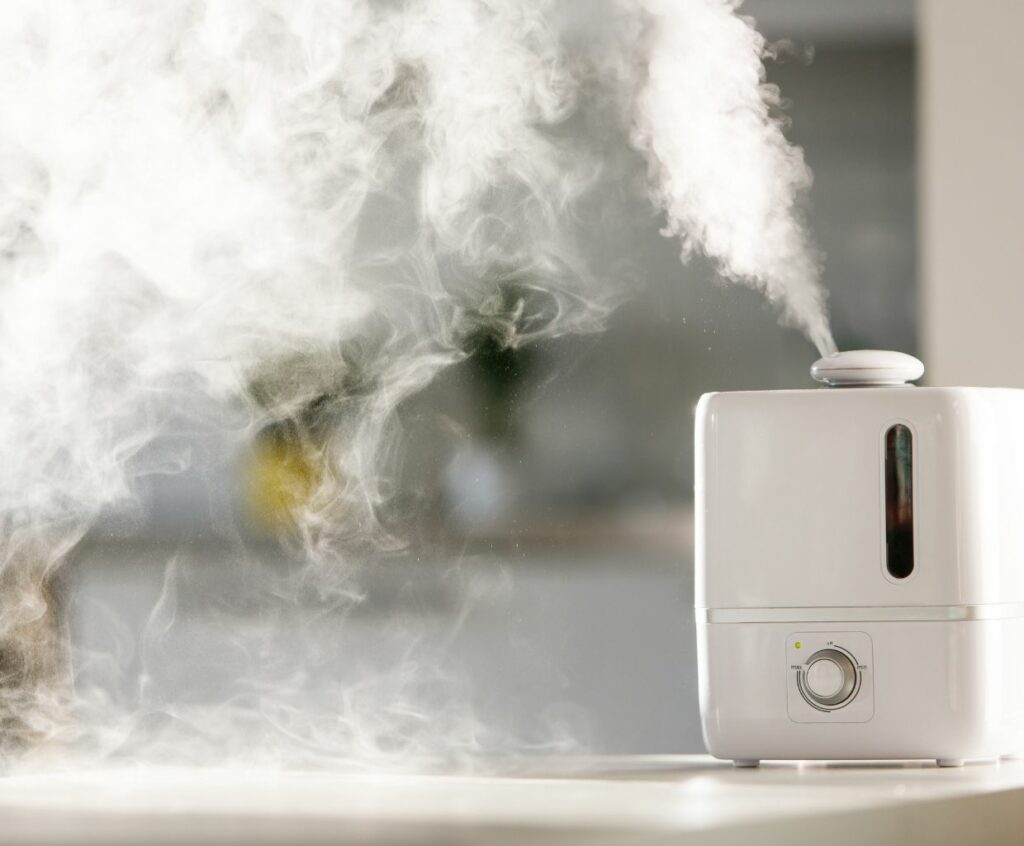Have you ever wondered why my humidifier smells? Well, you’re not alone. This guide is your one-stop solution to understanding and fixing that funky odor.
We’ll dive into the reasons behind the stink and offer practical solutions to freshen up your humidifier.
So, buckle up and get ready to sniff out the answers!
Content Summary
What could be causing my humidifier to smell?
The following are some of the most common causes of a humidifier smelling bad:
- Mold and mildew. If your humidifier is located in an area with high humidity or is not using distilled water (which is a good idea if you have hard water), mold and fungi can grow on your humidifier. This can cause it to smell like mildew or mushrooms.
- Fungus and bacteria. If you have hard water coming out of your faucet, then this could be causing some bacteria growth inside the tank; these bacteria will release gas as they die off, which may also contribute to why things smell bad in your home!
- Bad water—either too much chlorine or no chlorine at all! Chlorine kills unwanted organisms in our drinking supply; however, if there isn’t enough chlorine, other organisms may grow over time until they can compete with regular household disinfectants such as bleach (which should always be used around foodstuffs). This can lead us back to square one, where we start searching again: What could be causing my humidifier smell?
Bad water
If your humidifier constantly produces a strange odor, it could be because of bad water. The first thing to check is whether or not the source of your tap water has been treated with chlorine or chloramines. Chlorine can cause corrosion in the plumbing and fixtures around your home, leading to bacteria growth in humidifiers that use it as their main ingredient (like distilled or bottled).
If you have chlorine-treated water coming into contact with an electric heating element inside your humidifier, try switching over to distilled water—which doesn’t contain any contaminants like this—to see if that helps improve its performance without damaging anything else around it.
This may also help eliminate any smell lingering within other elements within those same systems if they’ve suffered similar damage before being replaced with new ones after being cleaned up properly beforehand.”
Hard water
Hard water can cause a buildup of minerals that can clog the humidifier. Hard water comprises calcium and magnesium deposits, minerals in water filtered through rocks or other materials. The buildup of these minerals in heating elements and water tanks can cause them to rust, causing them to be less effective at heating your home.
If you have hard water, watching how much time passes between changing out filters for your humidifier (and ensuring they’re clean) is essential. If you notice any discoloration around heaters or tanks after removing your humidifier for cleaning, contact a professional service provider immediately!
Mold and mildew
Mold and mildew grow in humidifiers. Mildew is a fungus growing on surfaces such as your humidifier.
It can cause health problems for you and your family if you don’t keep the humidity levels up to avoid it growing inside your home.
Fungus and bacteria
Fungus and bacteria can grow in humidifiers. To prevent fungus and bacteria growth, clean your humidifier regularly by blowing out the water with a brush or paper towel, then wipe down the interior with antibacterial soap or detergent like Dawn dishwashing liquid. You may also want to add some bleach when cleaning your humidifier (but only use ¼ tsp per gallon of water).
If you have a problem with fungi or mold in your humidifier after it’s been cleaned once or twice, here are some tips for preventing future problems:
You can keep your humidifier clean and odor-free
- Clean your humidifier regularly with water and a mild cleaning solution such as vinegar or baking soda.
- Use a bleach solution to clean the water tank, which holds the water needed to cool the air. This will help prevent mold growth in this area of your humidifier, which may cause an unpleasant smell when used over time.
Please ask if you have any questions about how to keep your humidifier clean!
Conclusions
The first thing to do is change your filter. Over time, the filters become dirty and must be cleaned. If you’re using a humidifier not connected to the water supply, consider buying a new filter, as they are more efficient than the original one it came with.
When changing the filter, only water filtered through a Brita or similar system. The most important thing is to keep your humidifier clean.



